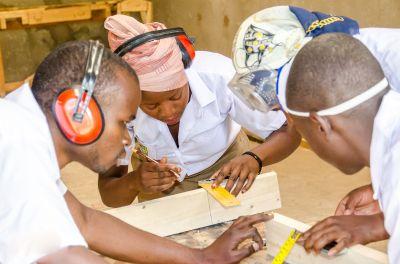The basis of successful dual vocational training is a training curriculum that is adapted to the needs of the companies. The set-up of relevant standards and the translation of these standards into workable training plans within the company and into suitable vocational school syllabi are crucial for successful training. In a dual training process, the learning within the company and the classroom instructions must be aligned and well co-ordinated. Our experts will support you in the development of training contents and of curricula for company learning and syllabi for classroom training.
Development of curricula, training plans and classroom syllabi
Our experts will assist you in defining the relevant training content in co-operation with companies, including the split between practical training in the companies and the competencies taught in vocational schools. We can support you in selecting companies and in organising workshops with all players for the definition of training contents for both learning venues. Our experts are familiar with proven methods for curriculum development such as DACUM (Develop A CurriculUM).
Co-operation of learning locations and training support
There is a need for close co-operation of the training venues throughout the entire duration of a dual TVET programme. The organisation and moderation of regular exchanges between in-company trainers and vocational school instructors is a helpful tool for continuous monitoring of the learning progress. Our experts can also support you in the development of a dispute resolution system to minimize drop-outs and conflicts between the parties involved in TVET – vocational schools, training companies and apprentices.









